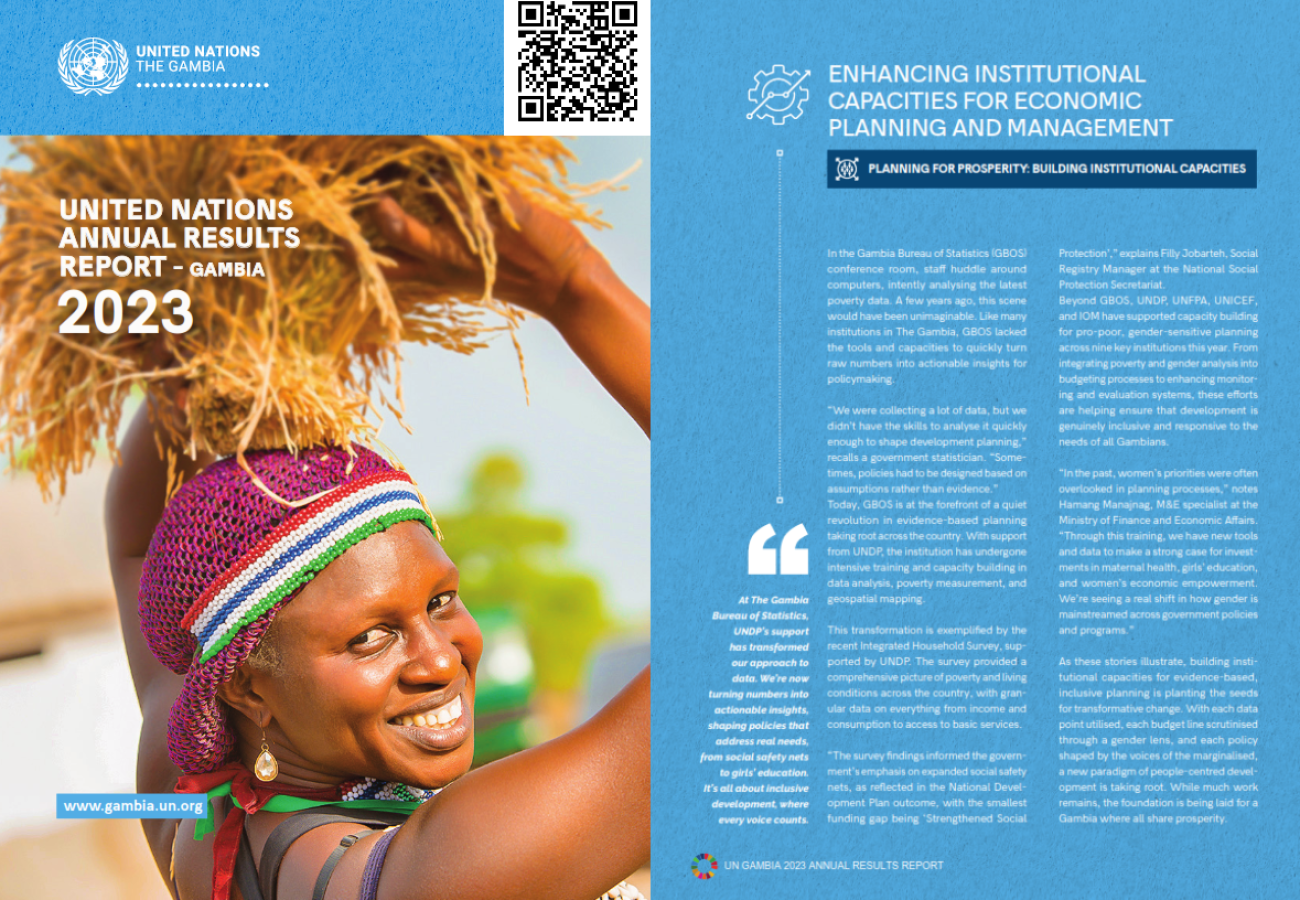PLANNING FOR PROSPERITY: BUILDING INSTITUTIONAL CAPACITIES
In the Gambia Bureau of Statistics (GBOS) conference room, staff huddle around computers, intently analysing the latest poverty data. A few years ago, this scene would have been unimaginable. Like many institutions in The Gambia, GBOS lacked the tools and capacities to quickly turn raw numbers into actionable insights for policymaking.
“We were collecting a lot of data, but we didn’t have the skills to analyse it quickly enough to shape development planning,” recalls a government statistician. “Sometimes, policies had to be designed based on assumptions rather than evidence.”
Today, GBOS is at the forefront of a quiet revolution in evidence-based planning that is taking root across the country. With support from UNDP, the institution has undergone intensive training and capacity building in data analysis, poverty measurement, and geospatial mapping.
This transformation is exemplified by the recent Integrated Household Survey, supported by UNDP. The survey provided a comprehensive picture of poverty and living conditions across the country, with granular data on everything from income and consumption to access to basic services.
“At The Gambia Bureau of Statistics, UNDP’s support has transformed our approach to data. We’re now turning numbers into actionable insights, shaping policies that address real needs, from social safety nets to girls’ education. It’s all about inclusive development, where every voice counts.”
Beyond GBOS, UNDP, UNFPA, UNICEF, OHCHR and IOM have supported capacity building for pro-poor, gender-sensitive planning across key institutions this year. From integrating poverty and gender analysis into budget processes to enhancing monitoring and evaluation systems, these efforts are helping ensure that development is genuinely inclusive and responsive to the needs of all Gambians.
“In the past, women’s priorities were often overlooked in planning processes,” notes Hamady Mangane, M&E specialist at the Ministry of Finance and Economic Affairs. “Through this training, we have new tools and data to make a strong case for investments in maternal health, girls’ education, and women’s economic empowerment. We’re seeing a real shift in how gender is mainstreamed across government policies and programs.”
As these stories illustrate, building institutional capacities for evidence-based, inclusive planning is planting the seeds for transformative change. With each data point utilised, each budget line scrutinised through a gender lens, and each policy shaped by the voices of the marginalised, a new paradigm of people-centred development is taking root. While much work remains, as reflected in the National Development Plan outcomes, the smallest steps can be big, being “Strengthened Social Protection.”



